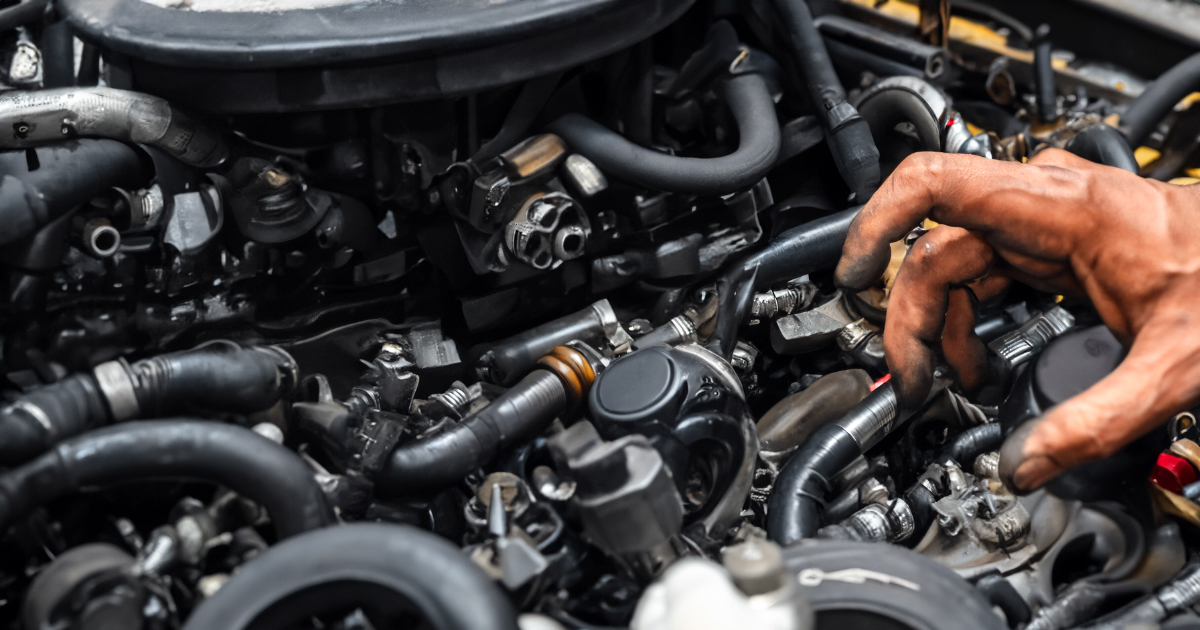 Routine service and preventive maintenance checks help prolong the life of your business partner – your truck.
Routine service and preventive maintenance checks help prolong the life of your business partner – your truck.
- It really helps to change your oil and oil filter per the specifications described in your truck’s service manual more often, or at least every 3,000 miles, if you frequently run it for many short trips, or run it hard for extended trips with a full payload or trailer.
- The fuel filter on your truck should be changed at least every 10,000 miles to prevent dirt, rust, and other impurities from getting into the fuel system.
- Your truck’s Air, Fuel, and PCV filters should be replaced not only as recommended, but even more often in dusty work conditions.
- As soon as you experience any engine drivability problems such as rough idling, stalling, hard stops, or diminished power, contact The Truck Shop right away.
- A truck’s cooling system should be completely flushed and refilled at least every 2 years.
- Remember to never remove the radiator cap until the truck engine has cooled completely.
- Your truck’s transmission fluid and filter should be changed every 15,000 to 18,000 miles to help protect the components and extend the life of the transmission and transaxle.
- Have the tightness and condition of drive belts, clamps, and hoses looked at by a professional to save more costly repairs in the future.
- Keep your truck’s windshield clean because a dirty windshield not only can create a safety hazard, but also causes eye fatigue.
- Replace worn wiper blades on your truck and keep the windshield washer solvent reservoir filled.
- Your truck’s tires should be rotated about every 5,000 miles for maximum efficiency and even wear. The entire suspension system needs to be inspected regularly also.
- Do check the tire pressure at least once a month, but let the tires cool down first if you’ve been on the road.
- Keep your truck tires inflated to the proper PSI levels because under-inflated tires can make it more difficult for your truck to get down the road and can cause your engine to consume more fuel to maintain a proper speed.
- It is suggested that you use the AC minimally on pleasant days because the air conditioner puts extra load on the engine and forces more fuel to be used. However, it is also beneficial to keep your windows closed, because when windows are opened wide – especially at highway speeds- the increase in aerodynamic drag can create a 10% drop in your vehicle’s fuel economy.
- Allowing your truck to idle adversely impacts fleet and truck owners by increasing both fuel and maintenance expenses. Just one hour of idling time consumes about one gallon of diesel fuel and it has been estimated that a reduction in idle time can reduce fuel usage This adds up to over $3 billion additional dollars annually in the trucking industry that could have been saved in fuel costs. Contrary to popular belief, restarting your truck uses less fuel than letting it idle.
- Watch and observe the posted speed limits. Did you know that the faster you drive, the more fuel you use? Just driving at 65 miles per hour instead of 55 mph increases your fuel consumption by 20 percent.
Keep your truck’s engine tuned at The Truck Shop. Something as small as a bad spark plug or clogged fuel injector results in costing you more down the road. These small repairs can reduce your truck’s overall fuel efficiency by as much as 30 percent if they are not fixed.







